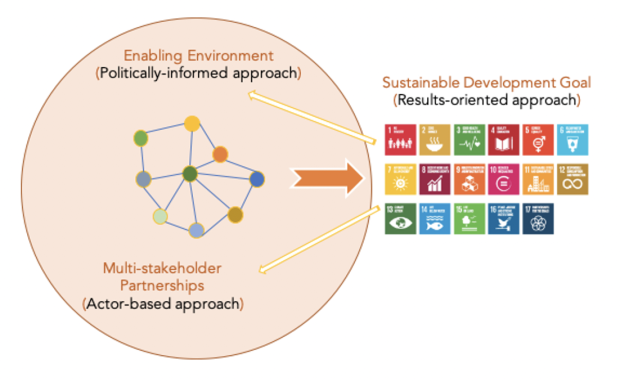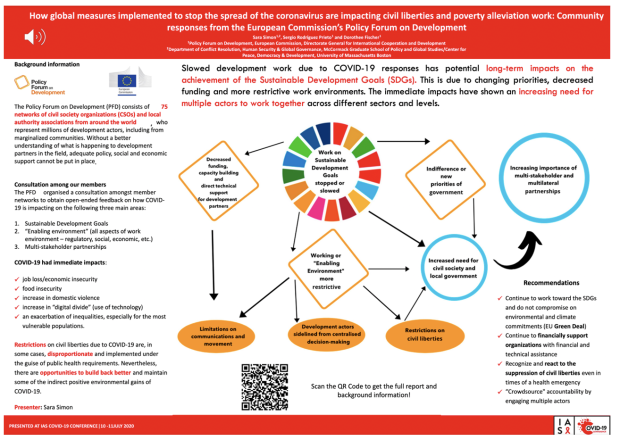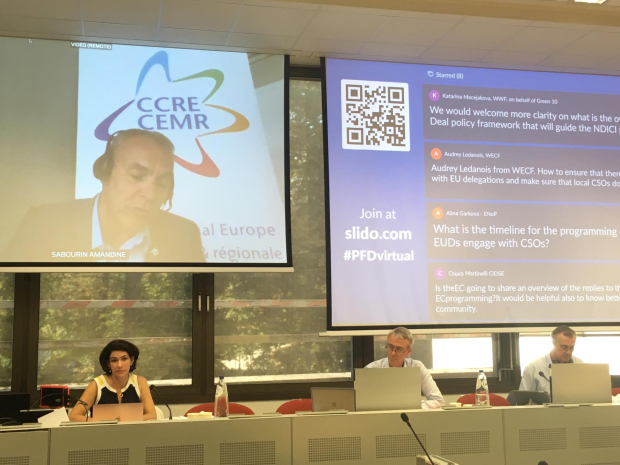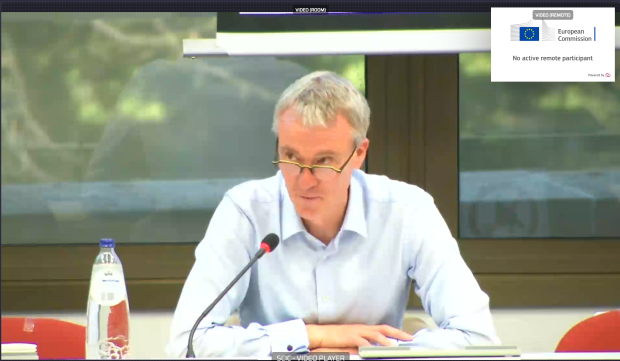Members of the Policy Forum on Development provide policy input into EU programming
Discussion details
The next financial framework 2021 – 2027 is around the corner, so the European Commission (both in the Headquarters and in EU Delegations), together with the European External Action Service, are finalising the programming documents for the new Neighbourhood, Development and International Cooperation Instrument (NDICI) over the next three months. Since April 2020, the members of the Policy Forum on Development (PFD) – 75 civil society organisations, associations of local authorities, as well as professional and business associations from around the world - have engaged in a comprehensive consultation/capitalisation process. The objective is to compile knowledge from the long-standing PFD dialogue and to make recommendations into the EU programming cycle, so as to foster the multi-stakeholder dimension of EU development policy. This exercise is also expected to allow a better understanding of the way the EU is engaging with development partners in the field, in order to improve policies, and the related social and economic support that can be provided.

The main areas of the PFD consultation in spring 2020
The capitalisation exercise began in April 2020 with a survey among PFD members regarding the implementation of the Sustainable Development Goals (SDGs), the role of multi-stakeholder partnerships in achieving them and the importance of promoting an enabling environment that allows each type of development partner to fulfill their respective mandates and roles. Given the exceptional circumstances in which it took place, the consultation also looked at the impact that COVID-19 was having on the PFD members’ work. The social, economic and political effects of the health crisis may well have been unpredictable, but they cannot be considered as unexpected. On the contrary, the rise in inequalities, overly centralised decision-making, excessive restrictions of personal freedoms or the asymmetric burden on women and girls are longstanding trends that the COVID-19 situation has just exacerbated. The survey results were presented on a poster during the Virtual COVID-19 Conference organised by the International Aids Society in July 2020.

Poster summarising the results of the PFD survey
As a second step the PFD held four virtual regional meetings in July (Europe & the Neighbourhood; Asia & the Pacific; Africa; Latin America and the Caribbean). The discussions revolved around the same topics originally foreseen for the in-person events (i.e. rising inequalities and EC priorities in light of Covid-19), although the virtual format allowed for the consolidation of written-input and additional feedback from the PFD constituencies.
On 15 September 2020, the members of the PFD engaged in a virtual dialogue with Koen Doens, Director General (DG) at DG DEVCO, in order to present the preliminary results from the consultation process and to receive feedback on their most pressing doubts and questions. The exchange confirmed that in general, PFD members’ concerns practically mirror EU priorities, such as climate and environmental issues, migration, economic recovery for all, democracy and digitalisation. The challenge remains how to address them through a multi-stakeholder approach and in light of exacerbating inequalities. Both the PFD members and the DG agreed that focusing on people is the defining feature of EU cooperation and should lead joint efforts towards “building forward better”. This increasingly recognisable European approach is people-centred, rights-based, gender-oriented and geopolitical.

Some members raised their concern about the substantial increase in geographic programming, which should not come at the expense of global thematic programmes and the role to be played by key stakeholders such as local authorities. In response, the Director General underlined that the “geographisation” of programming offers the opportunity to better tailor EU support and respond to specific country needs, while ensuring that those stakeholders that used to be funded through thematic lines should be duly included by the EU Delegations in their own territorial approach.
Furthermore, the PFD members insisted on the importance of monitoring the accountability of the private sector, especially with regards to blended financing mechanisms, while expressing their doubts on the efficiency of these tools. The DG invited the PFD members to engage with an open mind in a dialogue to make sure that innovative funding reaches those who need it the most and shared examples of success stories of blended finance models (e.g. support of female-owned business and micro-enterprises).

The Director General welcomed the first global “PFD 2.0” meeting and supported a continuous virtual dialogue in the months to come. In October and November 2020, thematic meetings among PFD members will delve into more technical issues regarding the role of multi-stakeholder partnerships in implementing the EU priorities and exploring ways to turn them into positive drivers for a more enabling environment and the localisation of SDGs. The results will also be summarised in a final document with inputs into EU programming to be submitted to the European Commission in early December

Log in with your EU Login account to post or comment on the platform.